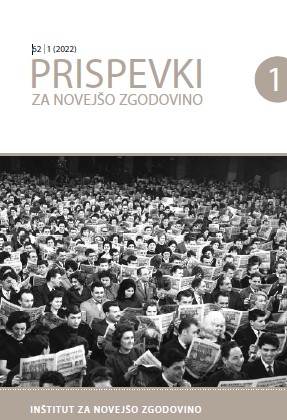Normative Role Orientations of Yugoslav Journalists: A Study of Journalism Ethics Codes in the SFRY
Normative Role Orientations of Yugoslav Journalists: A Study of Journalism Ethics Codes in the SFRY
Author(s): Melita Poler KovačičSubject(s): Media studies, Ethics / Practical Philosophy, Post-War period (1950 - 1989)
Published by: Inštitut za novejšo zgodovino
Keywords: journalism; ethics codes; normative roles; socialism; Yugoslavia;
Summary/Abstract: The goal of this study was to investigate the normative role orientations of journalists in the SFRY, as stated or implied in five Yugoslav journalism ethics codes. Application of the method of document analysis and the comparative historical method identified the reasons for adopting the first code and assisted in the analysis of how the codes conceptualised (the relationship between) freedom and responsibility, and how they addressed truthfulness and professional norms. The normative foundations of journalism outlined in these ethics codes were transforming over time and in response to changes in the socio-politico-legal-economic environment. Media/journalistic freedom was only permitted within the limits of the socialist orientation and if contributing to the building and development of the self-managed society, at least up until 1988 when the Marxist and Leninist values defining a journalist as a socio-political worker were removed. A journalist was obliged to follow their socialist conscience and be responsible to the working people – the socialist public, yet in the 1980s the codes stressed their responsibility to the public. While displaying several characteristics of the Soviet-totalitarian theory of the press, the normative foundations also somewhat resemble the social responsibility theory. Professional norms associated with truthfulness, professional integrity, and respect for human personality and dignity have been evolving over time, gaining more space, elaboration and emphasis. The fact that some professional norms were seen by the journalistic community as sufficiently important to be codified shows that the foundations of the professionalization of Slovenian journalism were laid in the socialist Yugoslavia already.
Journal: Prispevki za novejšo zgodovino (before 1960: Prispevki za zgodovino delavskega gibanja)
- Issue Year: 62/2022
- Issue No: 1
- Page Range: 64-81
- Page Count: 18
- Language: English

